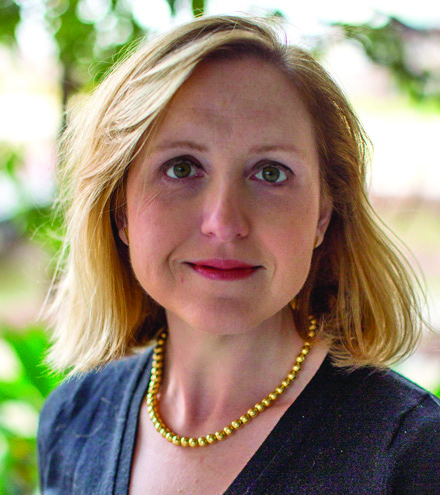Of all the available tools that can help smallholder farmers improve their livelihoods, there is perhaps one that is the most important: money.
Martha Brantley, director of strategic partnerships for the non-profit investment fund Shared Interest, works to help smallholder farmers, especially women, get the capital they need.
Access to capital is a major barrier for smallholders in southern Africa and one that creates a number of subsequent problems. Without money, the technologies and mechanization that could turn subsistence farming into viable, even profitable, operations remain frustratingly out of reach.
For far too many smallholders who want to invest in things like certified seed, an irrigation system or even hired labor, going to the local bank to take out a loan is simply not an option.
Banks view agriculture as risky business, so they require loan collateral well beyond the reach of the typical rural farmer. When the banks do offer loans, they often come with such high interest rates that the smallholders cannot afford them.

Shared Interest, based in Midtown Manhattan, is trying to change that scenario. The organization has made over $28 million in loan guarantees to get local banks in South Africa, Mozambique and Swaziland to “lend to people they otherwise wouldn’t consider lending money to,” Brantley said.
“Over the last century, there have been tremendous increases in yield in many parts of the world and most of those increases have been driven by technology, whether it’s mechanization, the hybridization of seed, or access to chemicals and fertilizers,” she said. “Smallholders have a right to access those technologies, but they all come at a price.”
With most smallholder farmers unable to pay for these technologies outright, many turn to their local banks for loans. More often than not, however, they are rejected because the banks doubt the farmers’ ability to pay them back.
The problem runs deep. According to Shared Interest, 72 percent of adults in southern Africa are excluded from financial services. And with climate change already shortening rainy seasons across the region, the situation is only going to get worse.
“Climate change is a really significant problem and it makes it even more important for farmers to be able to afford technology that can mitigate the impact – things like drought-tolerant seeds or access to small-scale irrigation,” Brantley said. “Those things aren’t free.”
Working with partners on the ground, the non-profit identifies groups of smallholders, like cooperative organizations and other “agripreneurs” who have promising farm business plans but lack the capital to see them through. It then steps in to guarantee as much as three-fourths of the amount of their loans, thus reducing risk for the banks and opening up a world of opportunities for the farmers.
“Ensuring that farmers have the capital to make investments in the technologies of their choice will give them so much more agency in being able to determine which risks they’re comfortable taking and which risks they’re not comfortable taking,” Brantley said.
Brantley pointed to Shared Interest’s involvement with a cooperative of 27 women in Swaziland who went from being subsistence maize farmers to running a large-scale poultry and popcorn operation.
The women began importing day-old chicks from South Africa that they then raised and sold at the local market. But when an outbreak of bird flu temporarily disrupted their imports, they used a Shared Interest-backed loan of $75,000 to rent a warehouse building, invest in equipment and hire workers to start producing popcorn. The co-op is now negotiating a contract with the Swazi government to have it sold as a healthy snack in schools.
“They now are basically a small commercial business with a dual operation instead of being individual subsistence farmers,” Brantley said.
The Swaziland farmers are typical of Shared Interest’s work. The group backs loans from anywhere between $50,000 and $3 million and estimates that the projects it has supported have benefitted some 2.3 million lives. Many of the beneficiaries are women who are “overburdened by work,” Brantley said.
“We know that women smallholder farmers do a tremendous amount of the work on the farm, but they also do the vast majority of unpaid domestic work,” Brantley said. “What a loan can do is give a woman access to a technology that reduces her work burden, whether that’s a clean-cook stove that doesn’t require her to gather wood, an irrigation pump that reduces her dependence on collected water, or something that allows her to increase her income so she can reduce the amount of time spent doing other types of work. It just opens up an enormous range of choices.”
Brantley said that while she loves her work and the ability to help smallholder farmers and their local communities, what Shared Interest does is not charity. Anyone receiving its services needs to have a clear plan.
“When we get a proposed loan, we don’t just evaluate it on whether or not we think the borrower can repay it, we evaluate it on whether we think it’s impactful, whether it’s a sustainable use of natural resources and if it is going to have a benefit for the broader community,” she said. “No one is borrowing money and then just sort of just being turned out on the streets to figure out what to do with it. In every case there’s a business plan; there’s technical support and an NGO or advisor that works with the borrower.”
